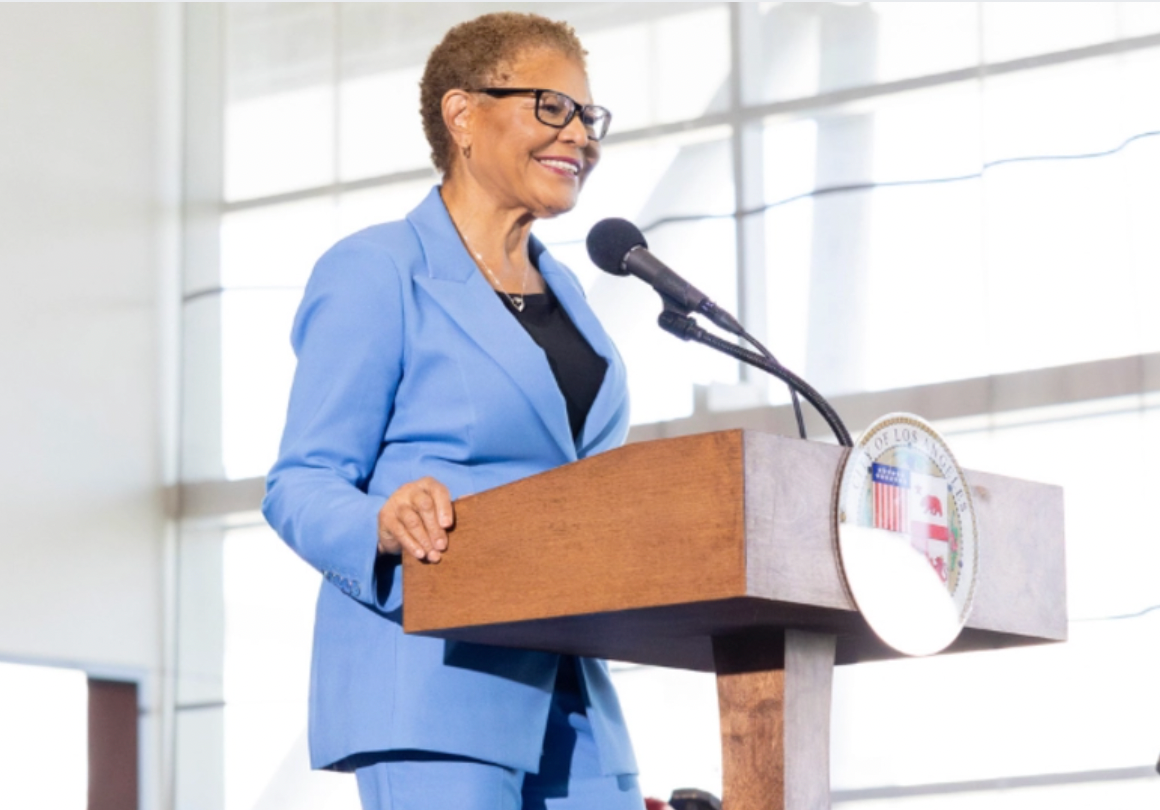By Stephen Witt
Federal law enforcement officials yesterday announced the arrests in two separate cases of a Beverly Hills developer and a Brentwood developer for fraudulently obtaining bank loans and flipping a property to get Los Angeles City and state funding allocated for the homeless, only to pocket the money for their own gain.

“Accountability for the misuse of billions of tax dollars intended to combat homeless starts today,” said Acting United States Attorney Bill Essayli. “The two criminal cases announced is only the tip of the iceberg and we intend to aggressively pursue all leads and hold anyone who broke any federal laws criminally liable.”
In the first case, Cody Holmes, 31, of Beverly Hills, was arrested and charged with mail fraud, a felony offense punishable by a maximum of 20 years in federal prison.
According to an affidavit filed with the complaint, in October 2022, the California Department of Housing and Community Development (HCD), a state agency, paid approximately $25.9 million in grant money – for a state “Homekey” homelessness project – to Shangri-La Industries LLC, a downtown Los Angeles-based developer of affordable housing. Holmes is the CFO of Shangri-La.
The grant funds were sent with the provision that the money be used to purchase, construct, and operate homeless housing in Thousand Oaks.
These payments followed many millions of dollars HCD had already paid to Shangri-La to buy, build, and operate housing for the homeless in Redlands (in San Bernardino County) and King City (in Monterey County), among other California cities.
Holmes knowingly submitted fake bank records to HCD that purportedly showed approximately $160 million supposedly controlled by Shangri-La and its affiliates to prove that Shangri-La had the capacity to fulfill the homeless housing projects for which it had co-applied for grants from HCD, including the Thousand Oaks project. In fact, the bank accounts that Shangri-La and Holmes said contained these funds did not exist.
After these documents were submitted to HCD, HCD paid millions of dollars more in grant money to Shangri-La, including for the Thousand Oaks project.
Some of the Homekey money paid to Shangri-La for homeless housing was used to pay credit card bills for American Express accounts associated with Holmes. In November and December of 2022, more than $2.2 million was transferred from a Shangri-La account to a Holmes-controlled account. Afterwards, from November 2022 to May 2023, more than $2 million was paid towards American Express cards. The charges on those credit card accounts included purchases at well-known luxury retailers. Law enforcement believes these payments were made at least in part for Holmes’s benefit.
In the second case, Steven Taylor, 44, of Brentwood, is charged with seven counts of bank fraud, one count of aggravated identity theft, and one count of money laundering.
According to the indictment, from August 2019 to July 2025, Taylor used fake bank statements and false cash representations to obtain loans and lines of credit to operate his real estate business. Among other uses for the fraud proceeds, Taylor acquired or refinanced properties in the Los Angeles neighborhoods of Silver Lake, Los Feliz, Westlake, Del Rey, Pico-Union, and Cheviot Hills.
Taylor also is charged with lying to lenders about his intended use of the properties, including lying to the lender funding his purchase of the Cheviot Hills property, misleadingly telling the lender he intended to renovate and use the property himself.
In fact, Taylor had already contracted to sell the property, which he originally acquired for $11.2 million (obtained with a loan via fake bank statements) to a homeless housing developer purchasing it with public funds from the City of Los Angeles and the State of California for $27.3 million in a double-escrow transaction hidden from the victim lender and others.
If convicted, Taylor would face a statutory maximum sentence of 30 years in federal prison for each bank fraud count, up to 10 years for the money laundering count, and a mandatory consecutive two-year sentence for the aggravated identity theft count.
Los Angeles Mayor Karen Bass responded to the announced charges, saying she has zero tolerance for corruption.
“Today we learned that a private developer has been arrested and charged in a complex scheme to defraud lenders across Los Angeles and Ventura Counties. One of the alleged fraudulent schemes involved real estate in West L.A. that was acquired to provide housing for elderly Angelenos experiencing homelessness,” said Bass.
“We’re working with the U.S. Attorney’s office to ensure that anyone who engages in fraud against the city will face the full force of the law and my administration’s unwavering commitment to accountability,” the mayor added.















